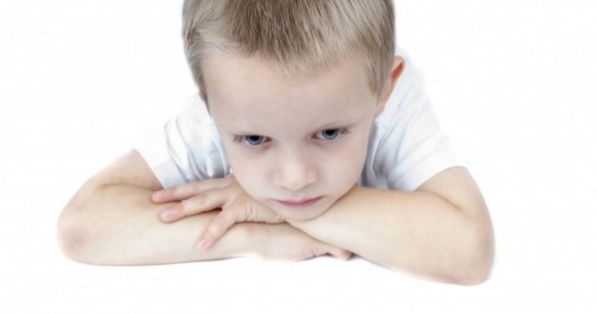Among the most common mental disorders are depression, generalized anxiety disorder, posttraumatic stress, panic syndrome, schizophrenia and psychoses.
The disorders of personality, as paranoid, schizoid, antisocial, borderline, obsessive-compulsive, among others, are not properly considered mental disorders. However, the presence of some of them may increase the predisposition for certain mental disorders.
Depression
It is the most common mental disorder along with anxiety. It is even known that the genetic factors responsible for generalized anxiety disorder and depression are the same. Even the general behavior of these individuals and the response to treatments are also very similar.
Depression is characterized by a very strong, deep and persistent sadness, which can be paralyzing in the most severe cases.
The person is lacking in interest and loses the pleasure in doing things, even if they are activities that they enjoy doing.
Apathy, the feeling of emptiness, discouragement, lack of energy and hope, as well as negative thoughts and pessimism, are also frequent symptoms of this type of mental disorder.
Treatment for depression includes the use of antidepressant medications, psychotherapy, and lifestyle changes.
Generalized Anxiety Disorder
People with generalized anxiety disorder have an intense and difficult to control concern. Anxiety is excessive and does not correspond to reality, causing intense suffering.
The signs and symptoms of this mental disorder can be physical and psychological, such as anguish, fear, agitation, irritability, increased heart rate, perspiration, shortness of breath, among others.
To be diagnosed as generalized anxiety disorder, the duration of symptoms should be longer than 6 months. The treatment combines anxiolytics and antidepressants associated with psychotherapy.
Posttraumatic Stress
Post-traumatic stress arises after a violent event or extreme trauma, usually associated with situations that have put one's life or others at risk. It is an anxiety disorder, therefore, with similar signs and symptoms.
However, in post-traumatic stress, the symptoms usually manifest at times when the individual thinks that he can return to live the traumatic experience again.
The treatment of this psychological disorder is difficult. The therapy consists of psychiatric medications, mainly antidepressants, and psychotherapy.
Learn more at: Generalized Anxiety Disorder Has Cure? What is the treatment?
Panic Syndrome
Panic syndrome is a mental disorder that causes acute attacks of strong anxiety, as if some tragedy or catastrophe could happen to the person at any time. The attacks occur suddenly and unexpectedly, lasting for 15 to 30 minutes.
Symptoms may include increased heart rate and breathing, shortness of breath, dry mouth, tremors, nausea, excessive sweating, dizziness, fear of dying, despair, imminent tragedy, vomiting, and fainting.
The treatment of panic syndrome is made with antidepressant and anxiolytic drugs, associated with psychotherapy, mainly behavioral therapy.
Schizophrenia
This type of mental disorder is characterized by attacks of psychoses with various symptoms, mainly delusions and hallucinations.
The crises come and go, with manifestations that may even include disorganized speech, very disorganized behavior, indifference, lack of affectivity, motivation and concentration, excessive distrust, changes in motor coordination, among others.
The treatment of schizophrenia is done with medications, psychotherapy, guidelines for family members and, in some cases, hospitalization.
Psychoses
Psychoses are mental disorders in which the person loses the notion of reality, and can cause symptoms such as delusions, hallucinations, strange and bizarre behaviors, mental confusion, loss of memory, among others.
The loss of contact with reality occurs due to the changes in the perception and thinking of these people, which is compromised. They draw wrong conclusions about the real world, even if everything shows the opposite, and they are not aware of their delusional or hallucinatory state.
The treatment of psychoses includes the use of psychiatric medications, psychotherapy, family orientations and hospitalization, according to the severity of each case.
Learn more at: What is a psychosis and what are its signs and symptoms?
The psychiatrist is the specialist responsible for the diagnosis and treatment of mental disorders.
You may also be interested in:
What are the types of mental disorders?
What are the types of personality disorder and its characteristics?






